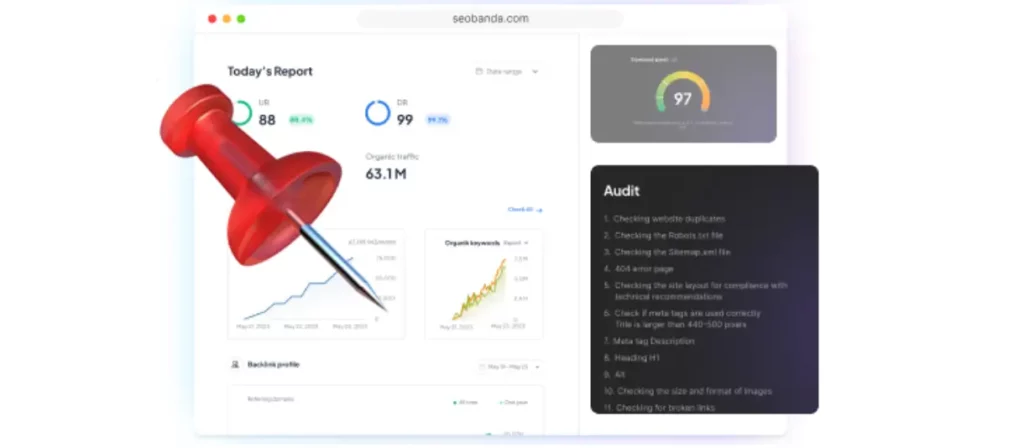Features of local SEO

Local SEO is becoming increasingly important for businesses that operate in offline areas, such as restaurants, shops, beauty salons, and others. More and more people are using search engines to find local products and services. Therefore, optimizing your business for local search can significantly increase your visibility and attractiveness to potential customers.
Today, the SEObada team will reveal the key aspects of local SEO and provide practical tips to help you drive more potential visitors to your offline business through search engines.
The importance of local promotion for business
Local search engine marketing (SEO) is the optimization of a website for promotion among the audience of a particular city or region. The main advantage of local SEO is that it increases the rankings of a website for regional queries. This makes a business more visible to local users, as people usually search for goods and services at a short distance from their homes.
In addition to attracting visitors, local SEO improves website usability. Users will see exactly the local establishments they were looking for. And businesses will be able to compete with their neighbors by attracting the attention of their target audience more effectively. So it’s a powerful marketing tool for online promotion among the residents of your city or neighborhood.
How local search works on Google
Google uses geolocation to display search results relevant to the user’s specific location. This includes using the IP address, language and location settings in your Google account.
When a user enters a local search query (for example, “restaurants near me”), Google determines their approximate location using geolocation and displays search results near that location.
Google Local uses context and behavioral cues to determine the most relevant local results. For example, if someone searches for “pizza,” Google Local results will suggest popular pizzerias nearby.
To improve local search, Google uses data about a particular user’s previous search activity and web browsing. This helps to better understand the context of the query.
Businesses can optimize their local listings on Google by including all the necessary data, such as address, phone number, and opening hours, and by encouraging positive reviews.
What factors influence local search results?
User location: Google takes into account the user’s geographical location and searches for results that are close to that location.
Relevance: Google takes into account how relevant the content is to the user’s query.
Business credibility: the company’s rating and user reviews are also taken into account by search engines when displaying results.
Optimization of the company’s page: it is important to have informative and up-to-date data on the company’s page, such as name, address, business hours, contact details, and other relevant information.
Local signals: the more positive reviews about the establishment in the local information space, the higher its position in Google local search results. Local signals include mentions of the company in local directories, reviews, and other sources of information.
Mobile optimization: since most users search for information via mobile devices, adapting a website to mobile devices affects local search results.
These factors work together to ensure that Google can show the most relevant results for users looking for local services or products..
Website optimization for local SEO
We understand that local SEO is not just a tool for increasing visibility, but also an opportunity to build long-term relationships with your local audience and expand your market opportunities.
Local meta tags: You need to include local keywords in your website’s meta tags, such as titles, descriptions, and keywords. For example, you can include the name of the city or neighborhood where your business is located in the description meta tag.
Content with a local focus: Create content that reflects the area of your business. This can be content about local events, news, history of the place, or stories about your experiences in the area or customer reviews.
Local links: Use internal links to pages on your website that are locally focused. For example, if you have a Contact Us page, include a link to it on all pages that mention your area.
Local information on the Contact Us page: On the Contact Us page, include your business’s full address, phone number, hours of operation, and a link to a map with a location marker.
Use structured data: Add structured data to your website to help search engines better understand your business’s local focus. For example, use schema.org to display microdata about your address and contact information.
These key aspects of optimization will help your website increase visibility in local searches and drive more local customers to your business.
Conclusions
Local SEO is an integral part of a successful marketing strategy for offline businesses. It allows you to increase the visibility of your business in local searches, attract more customers, and improve their experience. By creating unique, locally targeted content, using local keywords, and actively working with customer feedback, you can make your business more attractive to your local audience.
If you have any questions about optimizing your website for a specific location or want to audit your business for search engine optimization, the SEObanda team of experienced specialists will be happy to help you and bring your website to the top of Google.
